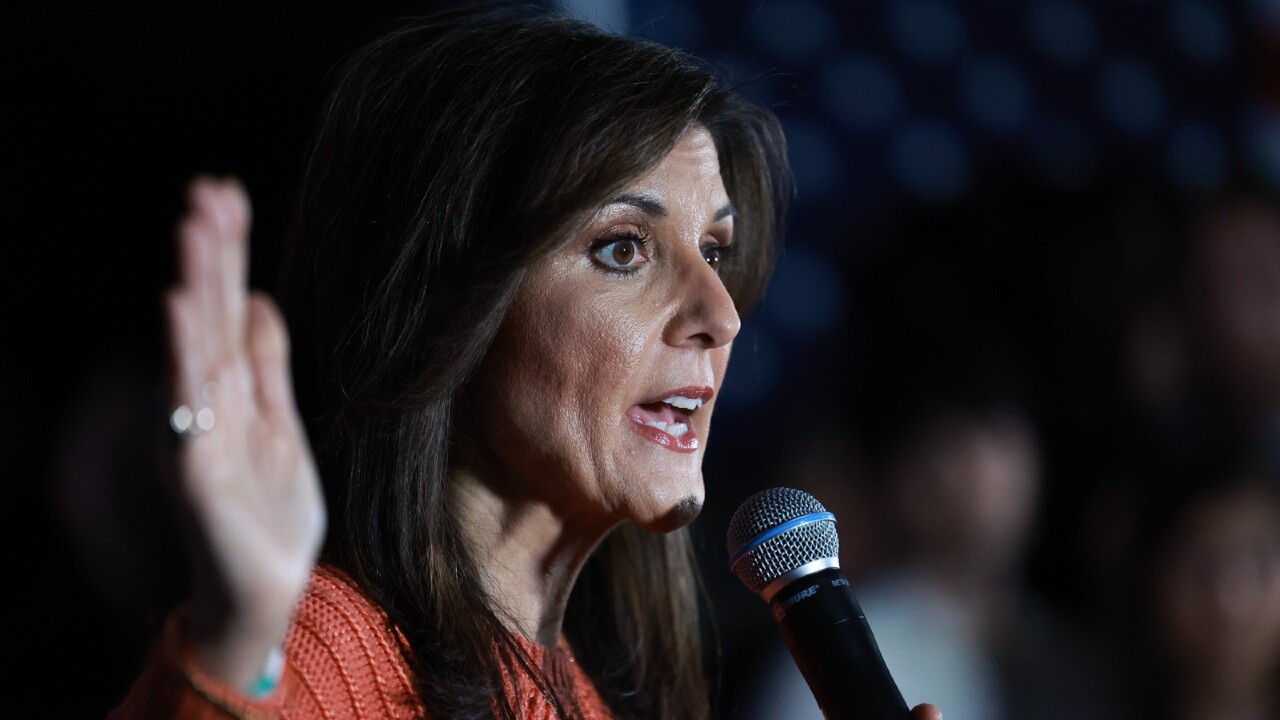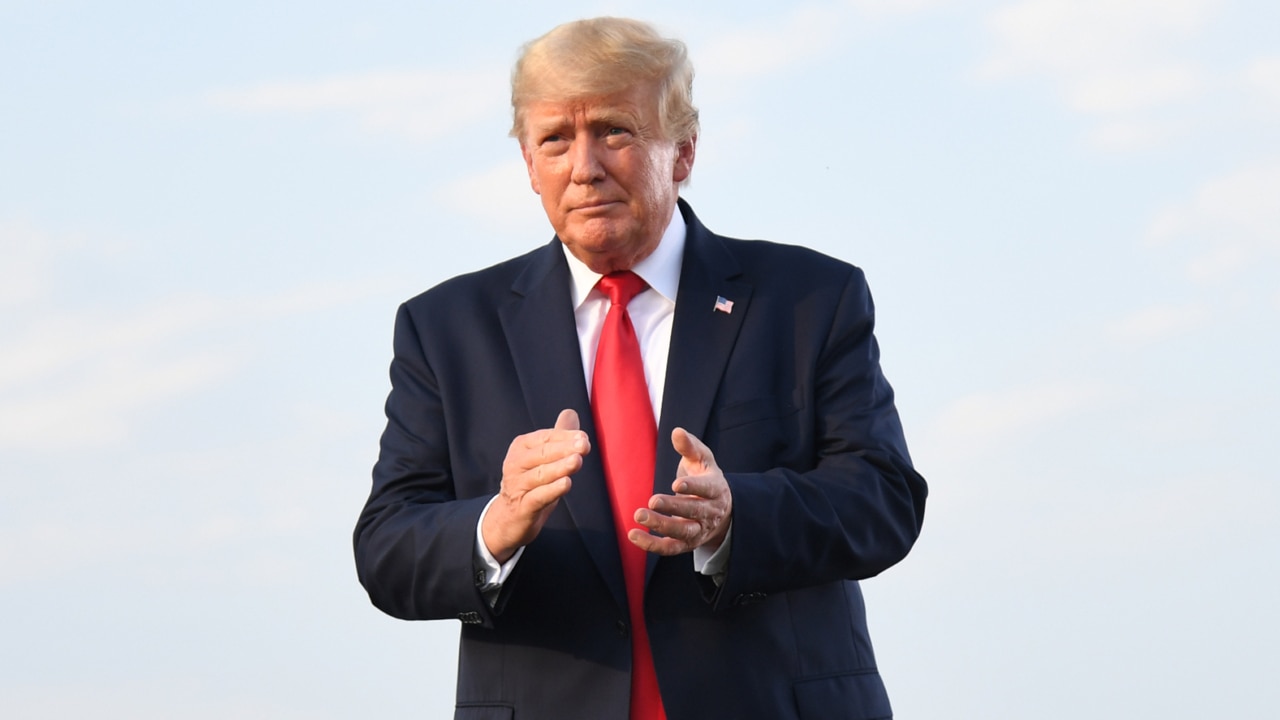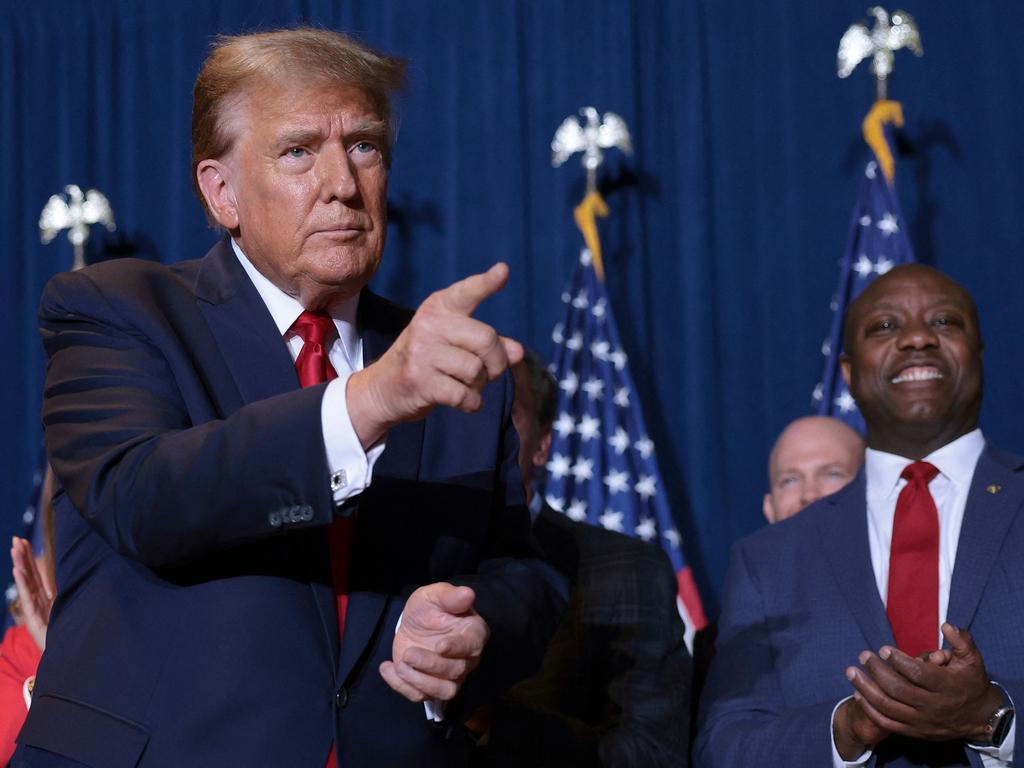State-by-state guide to Super Tuesday: Donald Trump, Nikki Haley in key presidential nominee battle
Voters in 15 US states with a combined population of around 135 million head to the polls on Wednesday AEDT. But for one candidate, it’s unlikely to be ‘super’.

Voters in 15 US states, with a combined population of around 135 million, head to the polls on Wednesday AEDT to pick their preferred presidential candidate.
Dubbed “Super Tuesday” since the 1970s, it’s typically the second most important day on the US electoral calendar after the November presidential election date itself.
For South Carolina governor Nikki Haley, Tuesday is unlikely to be “super” given she is so far behind and has lost every Republican primary so far.
More than one-third of the 2429 delegates are up for grabs and these 15 states could give former president Donald Trump the 1215 delegates he needs to wrap up the nomination.
Alabama
Among the poorest of US states, Alabama’s deeply red conservatives voters will almost certainly deliver Trump a huge victory over Haley, potentially by as much as 75 percentage points according to a recent poll by Morning Consult.
Delegates: 50; 2016 primary winner: Trump (+22.33 per cent); 2020 general election: Trump (+25.46 per cent)
Alaska
One Republican senator from Alaska, Lisa Murkowski, has been among the small handful of Republicans in congress to publicly endorse Haley, potentially complicating what should otherwise be a clear Trump victory. The vast state, which will be the last to provide results, is among a handful of jurisdictions in the US to permit Australian-style ranked-choice voting.
Delegates: 29; 2016 winner: Ted Cruz (+2.73 per cent); 2020 election: Trump (+10.06 per cent)

Arkansas
Like Alabama, deeply red Arkansas is almost certain to deliver the former president a resounding win over Haley. The state’s former governor Asa Hutchinson withdrew from the race in January, but too late to have his name removed from the ballot.
Delegates: 40; 2016 winner: Trump (+2.29 per cent); 2020 election: Trump (+27.62 per cent)
California
America’s most populous state, and one of the most trenchantly Democrat, has changed its primary voting rules in a way that will help Trump clinch his party’s nomination. Any candidate who receives more than 50 per cent of the vote in their party’s primary automatically receives all the state’s delegates.
Delegates: 169; 2016 winner: Trump (+63.42 per cent); 2020 election: Joe Biden (+29.16 per cent)
Colorado
The Rocky Mountain state’s supreme court made huge news last year by banning Trump from running for president in the state, pending a Supreme Court review. Once a swing state, its drift to the left has seen it receive less Republican attention in primary season.
Delegates: 37; 2016 winner: Ted Cruz (previously a caucus); 2020 election: Biden (+13.5 per cent)
Maine
The state’s Democrat secretary of state unilaterally decided to remove Trump from the ballot pending judicial review. The state’s veteran Republican senator Susan Collins is among the handful of Republicans in congress to endorse Haley.
Delegates: 20; 2016 winner: Cruz (+13.31 per cent); 2020 election: Biden (+9.07 per cent)

Massachusetts
Haley is focusing her final few days of campaigning in liberal, leafy New England, hoping the state’s large share of independent voters overwhelmingly prefer her over Trump.
Delegates: 40; 2016 winner: Trump (+31.3 per cent); 2020 election: Biden (+32.14 per cent)
Minnesota
Joe Biden was embarrassed by a near 15 per cent protest vote among Democrats in Michigan’s primary last week, which experts put down to the state’s large Muslim population angry with the administration’s support for Israel. Nearby Minnesota, which has a large Arab population of its own, could throw up a similar embarrassing protest for the president.
Delegates: 39; 2016 primary winner: Marco Rubio (+7 per cent); 2020 election: Biden (+7.12 per cent)

North Carolina
Both Trump and Haley spent the weekend campaigning in North Carolina, a swing state that could decide the outcome of the presidential election in November. Political analysts will be watching to see which voter groups bother to turn out for Trump and Biden.
Delegates: 74; 2016 winner: Trump (+3.47 per cent); 2020 election: Trump (+1.34 per cent)
Oklahoma
The Sooner State runs a “closed primary”, meaning only voters registered with one or the other parties can vote in that party’s primary. Without any Democrats able to switch to help Haley against Trump, as happened in other states, expect a very high level of support for the former president in this deeply red state.
Delegates: 43; 2016 winner: Trump (+6.05 per cent); 2020 election: Trump (+32.98 per cent)
Tennessee
No wonder Haley hasn’t made any campaign trips to the home of country music. Trump’s support in the deeply red state has averaged 85 per cent among Republicans compared to 15 per cent of Haley, according to the 538 pollsters.
Delegates: 58; 2016 winner: Trump (+12.23 per cent); 2020 election: Trump (+23.21 per cent)
Texas
Trump and Biden visited the Texas border with Mexico last week to signal their determination to do something about out of control illegal immigration. The solidly Republican state should be an easy win for Trump, who said state governor Greg Abbott was on his shortlist for V-P.
Delegates: 161; 2016 winner: Cruz (+17.01 per cent); 2020 election: Trump (+5.58 per cent)
Utah
The state’s Republican senator and former presidential nominee Mitt Romney has endorsed Haley, along with the state’s lieutenant governor. Haley visited the mountainous state last week, given Trump’s relatively lower support in the state.
Delegates: 40; 2016 winner: Cruz (+52.64 per cent); 2020 election: Trump (+20.48 per cent)
Vermont
The Green Mountain State is most famous these days for left-wing firebrand Bernie Sanders. Haley enjoys the backing of the state’s Republican governor, Phil Scott, one of the first Republican to blast Trump for his role in January 6, 2021.
Delegates: 17; 2016 winner: Trump (+2.33 per cent); 2020 election: Biden (+35.42 per cent)
Virginia
Haley should do relatively well in the Old Dominion, which butts up against the Democrat stronghold of Washington DC, but maybe not enough to defeat Trump outright. A Roanoke poll conducted last month gave Trump only a eight percentage point lead over Haley
Delegates: 48; 2016 winner: Trump (+2.82 per cent); 2020 election: Trump (+10.2 per cent)








To join the conversation, please log in. Don't have an account? Register
Join the conversation, you are commenting as Logout